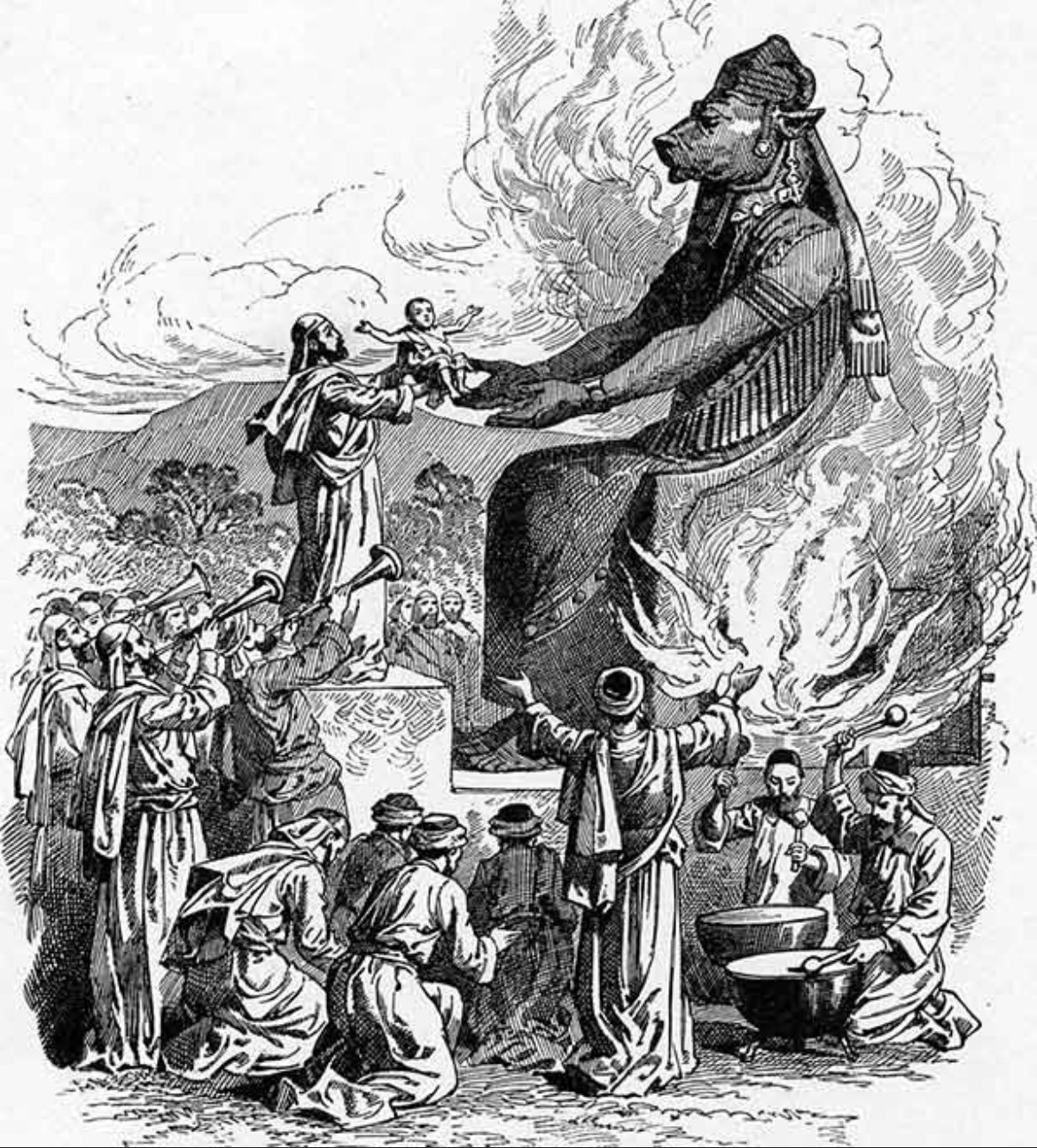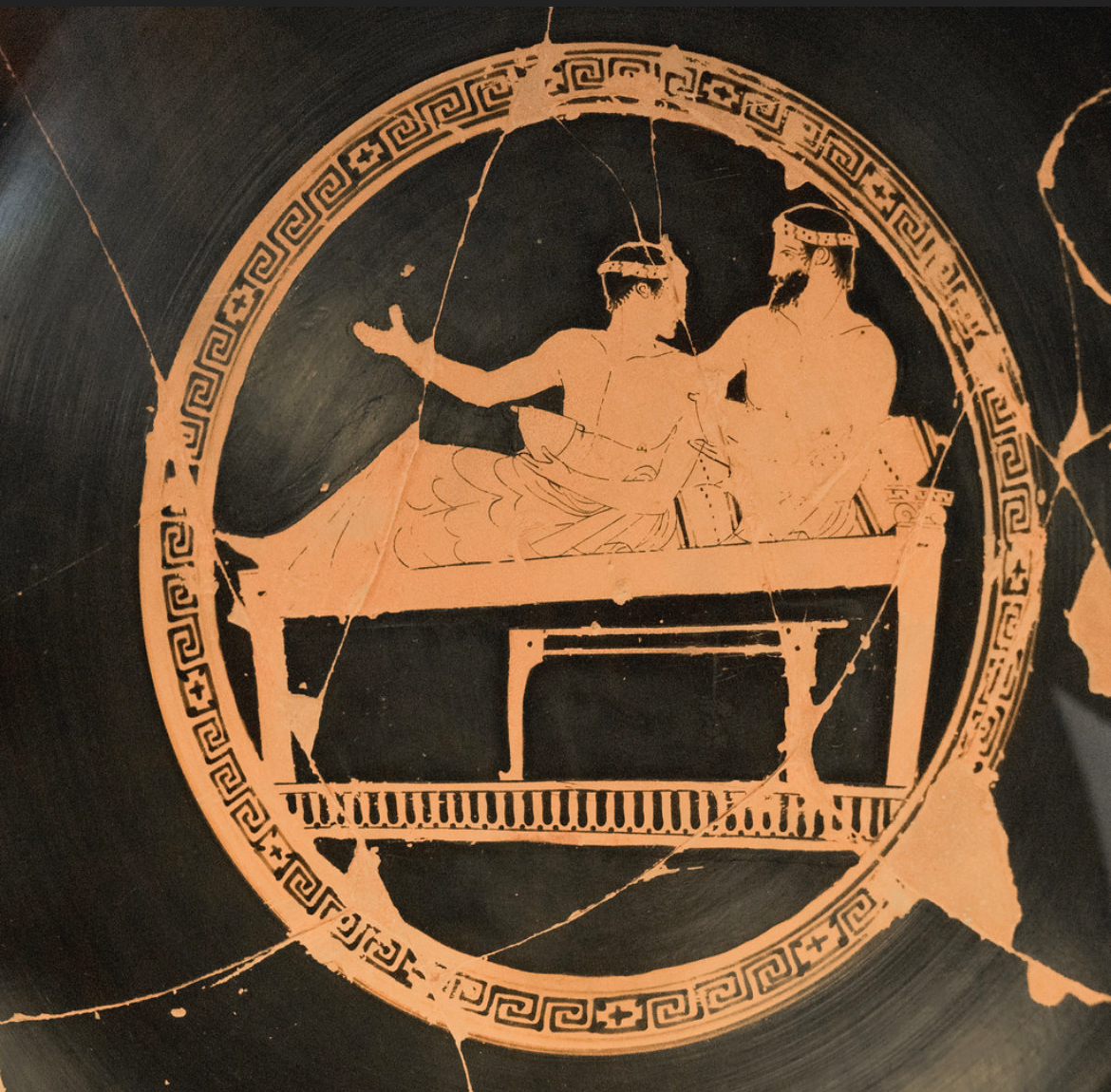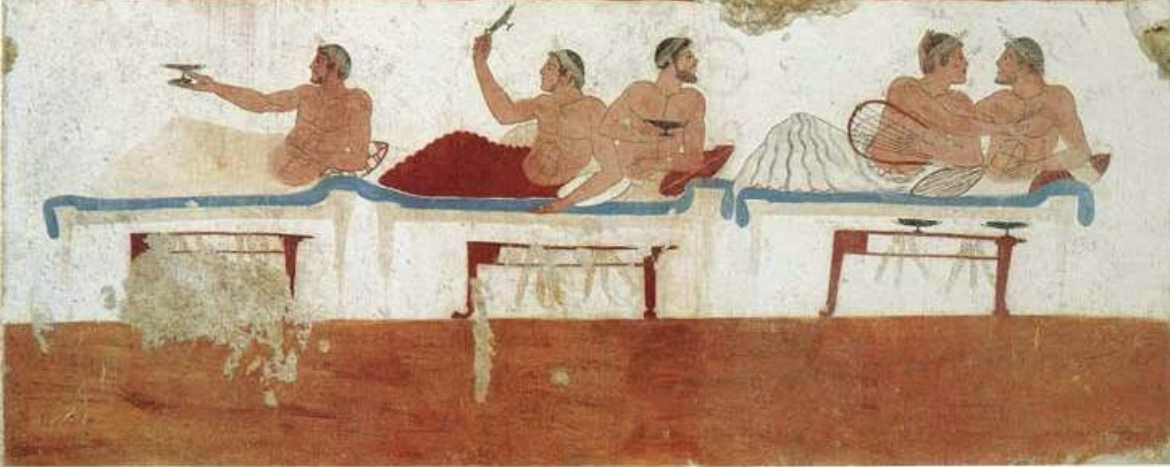Homosexuality, transgenderism, and the war on women. It’s been done before. With disastrous consequences.
Now that I’ve got your attention, let me tell you a sordid story of sex from history, theology, and art.

Romans 1:18-32 says there is a pattern to sexual degeneracy, and a society that rejects belief in God will inevitably follow it. It spirals downward in three stages:
- Worship of nature (vv. 21-23)
- Homosexuality (vv. 26-27)
- “A debased mind” (v. 28)
According to the Apostle Paul’s argument, this is a kind of blueprint for depravity once a society severs its tie with the Absolute and people indulge their sexual appetites unrestrainedly. In Stage 2, he says society crosses over into that which is “contrary to nature,” that is, homosexuality. (v. 26)

I am currently in Rome. If you’ve ever been here, you know statues of Roman heroes—both real and mythological—are scattered around The Eternal City. What you may not know, however, is that the Romans weren’t particularly original in this respect. Just as Roman mythology was a blatant plagiarism of the Greek pantheon, so, too, was their art. But the art in both cases is a clue to a great deal more than meets the eye.

Greece was the first truly Western society to attempt to mainstream homosexuality and, later, pedophilia. Greek civilization, perverse and self-indulgent, collapsed. The Romans followed a similar path, and, their civilization also collapsed. And, before both, the Ancient Hebrews did the same.

But the statuary. What about it?
Greco-Roman art began to celebrate, and then to worship, the male physique. Women generally play a minor role in the art of the late Greek and Roman Empires. It is the males, stripped naked and absurdly muscular, that dominate the art of these periods.

Back to the Apostle Paul. In 1 Corinthians 11:1-16, he makes an additional argument that has application here. It’s unusual because it appears nowhere else in Scripture. It’s about hair. Yes, hair. He says, in effect, that long hair on a man is effeminate, while long hair on a woman is “her glory.”

“That’s just a cultural thing,” you say. You’re not alone in saying it. Some ignorant pastors say the same. But Paul isn’t making a cultural argument. He appeals to creation:
“Doesn’t nature itself teach you that if a man wears long hair it is a disgrace for him, but if a woman has long hair, it is her glory?”[1]

This argument appears only once in the Bible and that’s because the church at Corinth was dealing with advanced sexual perversion both in the city and in the church.
If you know anything about ancient Corinth—or if you’ve been there as I have—you know the Temple of Aphrodite sits high above the city on a rocky hill.
Aphrodite was the goddess of love and lust. She was served by temple prostitutes who were kept busy with customers. Corinth was a port city. Travelers from around the Mediterranean passed through daily.

A proverb from the period said, “The voyage to Corinth isn’t for every man.” That’s because many a man destroyed his soul there. Think in terms of the lyrics to Murray Head’s ‘One Night in Bangkok’:
One night in Bangkok and the tough guys tumble,
Can’t be too careful with your company,
I can feel the devil walkin’ next to me.
Or The Animals’ ‘House of the Rising Sun’:
It’s been the ruin of many a poor boy,
And God, I know I’m one.

Such was Corinth.
A clue to the degeneracy is found in the art. Statues of Aphrodite in this period depict her with a short masculine hairstyle. Indeed, she looks masculine. This fashion entered the church with women mimicking the style of Aphrodite, a male creation, and her prostitutes the way women today might mimic a pop star. Paul tells them it is unnatural. To do so, was to throw off their femininity and assume a masculinity that God never meant for them to have.

In the Lord’s divine arrangement of things, men were to be men, women women, and the two were to remain in their respective lanes in appearance and purpose. But with the worship of the masculine it became fashionable to assume masculine characteristics.

Do you begin to see the pattern the Apostle was talking about?
It’s not just that the Hebrews, Greeks, and Romans followed it through every stage, but we are following it, too:
- Worship of nature. We are there. What is the environmental movement if not a new paganism?
- Homosexuality. We began tolerating it decades ago, but now it is mainstreamed.
- A debased mind. Does this require any commentary? The sexualization of children, irreversible adolescent sex-change operations, and the mainstreaming of pedophilia.

Riding above it all is the worship of masculinity—but in perverse form.
If statuary was the medium of artists of the Greco-Roman Periods, today that same sentiment for the male is expressed in comics, graphic novels, and superhero movies where an exaggerated form of physical masculinity is standard fare, and women forsake feminine characteristics for masculine ones.[2]

In Late Greece and Rome (and now), women were sold a lie, the acceptance of which is fundamentally detrimental to them having any role in society whatsoever: that their femininity is weakness.

Think about the efforts of feminists to overthrow their own femininity in order to pursue masculinity:
- Abandon childrearing and the home to enter the workplace and compete with men
- Abortion as a means of suppressing the role of wife and mother to remain in competition with men

- The campaign, until quite recently, to enter traditionally male spaces—sports, military, etc.—to compete with men. The feminist advance has been arrested by biological males entering into traditionally female spaces in sports, bathrooms, childrearing, and even in efforts at childbearing.

Of course, this can only end in failure. Women cannot fill male roles as well as men who were designed by God for that purpose. (The reverse is also true.)

The Late Greeks and Romans annihilated the feminine and simultaneously elevated the masculine, but, as I have said, in perverted form. For example, the Greeks came to see homosexuality and pedophilia, not as sissy, but as the ultimate expression of male dominance. (See the recent story of disgraced U.S. Army Colonel Brian Connelly.)

We are on that trajectory, and unless the downward spiral is halted, our civilizational end will be the same as those that preceded us.

Coincidentally, I write from a sidewalk café, and from where I sit, I can see a scarf for sale bearing the image of Frida Kahlo, the Mexican artist of the infamous uni-brow. Frida is best known for her “Self-Portrait with Cropped Hair.”

In it, she sits in a chair wearing a man’s suit. Scissors in hand, hair clippings cover the floor around her. Betrayed by her husband, she cut off her hair and threw off her femininity in a bitter statement that she no longer needed a man, she could become one. It’s like an early expression of transsexuality before transsexuality was mainstreamed.

Sadly, Frida is a feminist icon (especially here in Europe), her rage being kept alive by a generation of women who would follow her example. But to what end?
I’ll tell you: The complete destruction of women.
With the rise of homosexuality and the worship of a warped masculinity, men made war on womanhood, and they are repeating the pattern.

Unfortunately, many women are aiding in their own destruction. If Frankensteinian science can achieve reproduction without women, it will be the end of women—and civilization.
Forsaking what is natural and God-ordained is not without consequences.
[1] While Paul’s argument is not cultural, what constitutes long or short hair is. In a culture where, say, women wore their hair to the middle of their backs or longer, shoulder-length hair would be deemed short. The point is what is and isn’t feminine, and we know it when we see it. Nazarites (e.g., Samson) were an exception ordained by God.
[2] Since I cannot include them here due to copyright, simply compare images of Superman from 1960s comics to those of today. Note the evolution of his physique.
WAIT! Do you appreciate the content of this website? We are a nonprofit. That means that our work is made possible and our staff is paid by your contributions. We ask you to consider supporting this important work in an ongoing basis or, if you prefer, perhaps you will drop a few buck in our “tip jar.” All contributions are tax-deductible.


